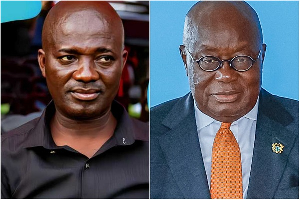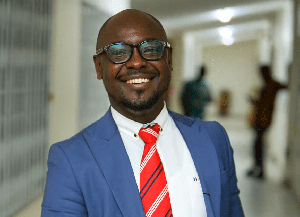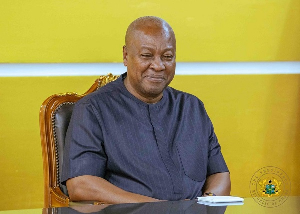Professor Ken Agyeman Attafuah, Executive Director of Justice and Human Rights Institute, has advocated the enactment of Public-Private Partnership (PPP) law that clearly defines the modalities for sharing risks, assets and returns among PPP partners.
He said the government must enhance PPP regulatory framework, insisting that Ghana needs a law that transcends the limited ‘value-for-money,’ emphasizes the PPP policy, which now governs PPP arrangements in Ghana today.
Such a law, the Executive Director of Justice and Human Rights Institute noted, must also envision and address conflict resolution challenges relating to PPP and must emphasize Alternative Dispute Resolution (ADR) in order to avoid protracted litigation spanning eight months or thereabouts.
Delivering a paper on the theme, “Exploring the Commitment to Public-Private Engagement: Case Studies” during a two-day Annual Strategic Conference of the Chartered Institute of Marketing Ghana (CIMG) in Accra, the criminologist averred that government must introduce legislation to regulate the emerging field of PPP.
“Regulation is critical in ensuring smooth economic and social intercourse and national development. The State cannot cede its traditional role of providing service for the benefit of the populace to private sector actors,” adding that “where domestic resources and abilities are inadequate in meeting these ends; government has a responsibility to adopt novel strategies for serving the people’s legitimate interests.”
The former Executive Secretary of the National Reconciliation Commission (NRC) stated that the attainment of the Ghanaian dream would be made possible through civil society’s vigilance in policing the potent partnership deals struck between the powerful public and the rich and resourceful private actors.
Prof. Agyeman Attafuah, in this regard, indicated that “we must commit ourselves to fighting corruption in all its forms, stressing that “perhaps it is fair to say that the best example of PPP in Ghana’s history is Ghana- Kaiser Aluminium Company partnership, which produced the Akosombo Dam. American capital and technical expertise built the dam that is still the mainstay of our power sector.”
“What was the track-record of Asontaaba beyond land acquisition when we invested so much of our money in that laudable theoretical business venture and what about rLG is that a PPP? What did we do with State Transport Corporation when it became Vanef-STC, and what did we do with the Presidential Special Initiative on Cassava and garments?” he quizzed.
The Justice and Human Rights Institute Director added that “as a country, we must be careful not to privatize government facilities so that private persons can participate in the “chopping” of public funds in the name of PPP.”
Explaining further, Prof. Agyeman Attafuah intimated that “we must increase our resolve to fighting corruption earnestly. I am looking up to my President, His Excellency John Dramani Mahama, to roll out strategies to deal frontally with the canker of corruption for the sake of our dear nation.”
If we place premium on freedom as the preeminent value, then the country must fight corruption far more seriously than what it has done to date, he added.
“Fighting corruption is paramount to good citizenship; it is like voting to elect governments and paying taxes. We must see the job of fighting corruption at the dawn of an energized PPP regime as the highest mark of citizenship,” he said.
Business News of Wednesday, 23 October 2013
Source: Daily Guide
Attafuah pushes for PPP laws
Entertainment












